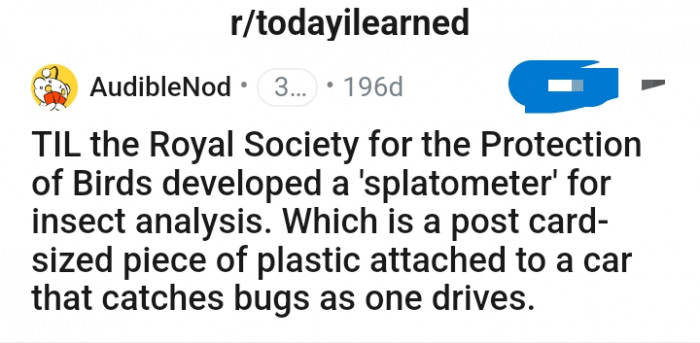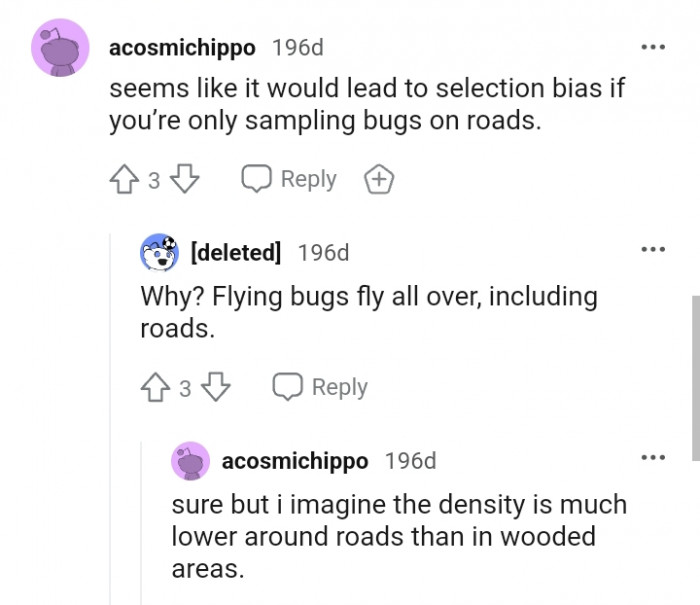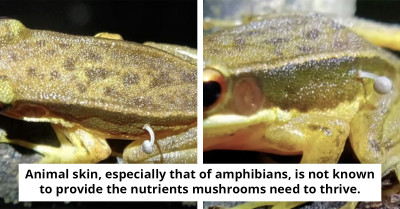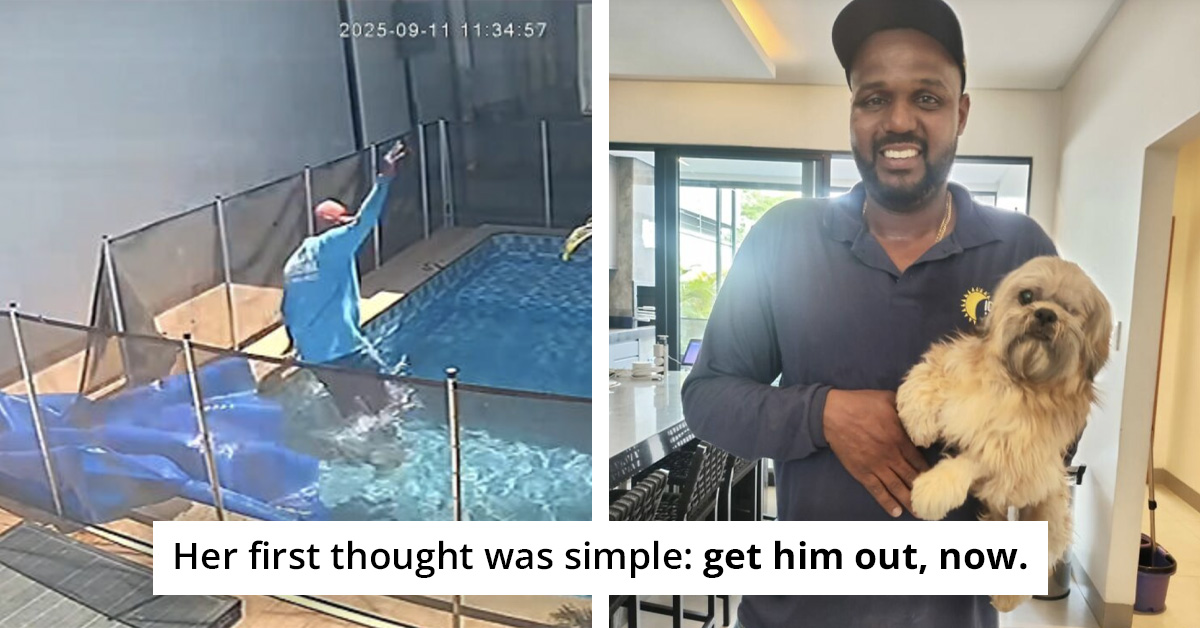The Royal Society For The Protection Of Birds Developed A 'Splatometer' Which Is A Piece Of Plastic Attached To A Car That Catches Bugs As One Drives
Conservationists want drivers in the United Kingdom to use a device they call a "splatometer" to count the number of flying insects they see. Its size is similar to that of a postcard.
The goal is to determine whether anecdotal evidence of an insect population decline is credible. According to the Royal Society for the Protection of Birds (RSPB), declining species include maize bunting and tree sparrows.
It is curious to know if there is any connection between this and the apparent decrease in the populations of bees, ladybugs, moths, and other insects. To sample the quantity of insects drivers encounter while traveling, the organization has created a postcard-sized bug-catching gadget.
RSPB's Richard Bradbury had this to say:
"If people across the country do this, we'll be able to develop a picture of the regional trends in insects and, if we do it in the future, any temporal changes as well."
The study's findings may assist in identifying the extent to which the number of insects affects the number of birds. The Wildfowl and Wetlands Trust's Pat Wisniewski had this to say:
"Lack of insects could affect bird populations, but I think there are a number of other factors as well; for instance, global warming might affect the distribution of birds within the country."
More Info: Reddit, news.bbc.co.uk
Redditor u/AudibleNod has this interesting piece of information to share with the TodayILearned subreddit group

The "splatometer" is a postcard-sized piece of plastic attached to a car that catches bugs as one drives

A rectangular piece of PVC that is affixed to the front of a car serves as the splatometer. The PVC rectangle is transported, covered with a similar piece of plastic, and then sent for analysis.
Redditors had a lot to say, and we've gathered a bunch of their replies for you below.
Practical Recommendations for Engaging Citizens
To maximize the effectiveness of the 'splatometer' initiative, conservationists should consider implementing educational workshops alongside the tool's distribution. These workshops can equip participants with knowledge about local ecosystems and the critical role insects play in maintaining biodiversity. As highlighted by James Clear, author and habits expert, "You do not rise to the level of your goals. You fall to the level of your systems." This approach can lead to more sustainable behaviors and a greater appreciation for biodiversity.
Additionally, fostering community engagement through social media platforms can amplify the initiative's reach. By creating a community of users sharing their findings and experiences, conservationists can cultivate a supportive environment that encourages ongoing participation. Adam Grant, organizational psychologist, emphasizes that "meaningful work and community are essential for motivation and engagement," which not only aids in data collection but also builds a network of environmentally conscious individuals committed to fostering change.
How do they teach the one bug to drive?

The introduction of the 'splatometer' as a tool for measuring insect populations reflects a broader trend in environmental psychology, where human behavior is increasingly seen as interconnected with ecological outcomes. Research published in the Journal of Environmental Psychology indicates that individuals who engage in citizen science projects often report enhanced environmental awareness and concern for biodiversity. This heightened awareness can lead to a more profound emotional connection to nature, which is crucial in motivating conservation behaviors. Dr. Daniel Goleman, an emotional intelligence expert, states, "When people feel connected to nature, they are more likely to take action to protect it," reinforcing the importance of such initiatives.
Furthermore, when people actively participate in data collection, they may experience increased feelings of agency and responsibility towards their environment. This aligns with findings from Dr. Barry Schwartz, a choice researcher, who notes, "Participatory initiatives can empower individuals, fostering a sense of community and enhancing commitment to ecological preservation." Such insights highlight the significance of collaborative efforts in promoting environmental stewardship.
Understanding the Decline in Bird Populations
The development of the 'Splatometer' by the Royal Society for the Protection of Birds underscores a pressing concern in conservation psychology regarding the decline in bird populations. Research indicates that substantial environmental changes, particularly habitat loss and pollution, play significant roles in this decline. According to studies published in the Biological Conservation journal, human activities have led to drastic reductions in biodiversity, which can alter ecological balances.
This situation reflects broader psychological principles related to environmental stewardship and collective responsibility. When individuals recognize the impact of their actions on the environment, they are more likely to engage in pro-environmental behaviors.
If you're only sampling bugs on the road, then it's selection bias

We used to have so many insects that bumped into cars

Some Redditors were of the opinion that climate change is definitely part of the issue, but habitat loss and pesticides are the primary culprits when it comes to the declining insect population. Some remembered it being a constant occurrence where one's car would just be covered in dead bugs, especially if you drove at night.
Keep scrolling to see more comments.
Insect abundance has plunged in Europe, according to this Redditor

Behavioral Insights into Conservation Efforts
Understanding the psychological barriers to conservation is essential for the success of initiatives like the 'splatometer'. Many people struggle with what psychologists call 'environmental apathy', a phenomenon where individuals feel overwhelmed by the scale of environmental issues, leading to disengagement rather than action. A study by Gifford and Nilsson (2014) highlights that when individuals perceive their contributions as insignificant, they are less likely to engage in environmentally friendly behaviors.
To counteract this, conservationists could implement strategies that emphasize the measurable impact of individual efforts. For instance, framing the act of using a splatometer as a vital contribution to scientific research could help individuals recognize their role in the larger conservation narrative. By providing tangible feedback on the effects of their participation, such initiatives can foster a sense of efficacy and community, encouraging ongoing engagement with environmental issues.
The psychological concept of ‘connectedness to nature’ is critical here. Research from the University of Essex shows that when people feel a sense of connection to the natural world, they are more inclined to take action to protect it. This emotional bond can enhance conservation efforts as it fosters a sense of responsibility and care for the environment, encouraging individuals to participate actively in initiatives like the one spearheaded by the RSPB.
By cultivating this connection, organizations can enhance public engagement and commitment to conservation efforts.
What's the last thing that goes through a bug's mind???

People have cars and cars get splattered with bugs

This Redditor is a huge fan of the Royal Society for the Prevention of Birds

From a cognitive standpoint, the 'splatometer' can also serve as a tool for behavioral conditioning, which is a process where individuals learn through the reinforcement of their actions. Dr. Angela Duckworth, a renowned character researcher, states, "When people have tangible tools that facilitate positive behaviors, such as monitoring insect populations, they are more likely to continue those behaviors over time" (angeladuckworth.com). Moreover, the novelty of using a splatometer might enhance intrinsic motivation, as the device adds an element of fun and engagement to the task of monitoring insects. This aligns with Self-Determination Theory, which posits that experiences fostering autonomy, competence, and relatedness can significantly enhance motivation and engagement in a given task, as noted by Dr. Carol Dweck, a leading motivation researcher who emphasizes the importance of mindset in learning and growth (mindsetworks.com).
Practical Steps for Conservation Awareness
To combat the decline in bird populations, practical solutions can be implemented at both individual and community levels. Educational programs that focus on the importance of biodiversity can significantly impact public awareness. Research indicates that community involvement in local conservation efforts not only benefits wildlife but also strengthens community ties. Initiatives like bird-watching clubs or local habitat restoration projects can foster a sense of community responsibility.
Additionally, integrating conservation education into school curricula can instill early awareness and responsibility for the environment in younger generations, promoting lasting pro-environmental behaviors.
For several bird species, the population is declining, so this is a step that had to be taken. The software analyzes the plastic pieces covered in bug droppings and keeps track of the number and kind of insects that were killed.
What do you think about this move? Will it help save the bird species that are on the decline?
Leave your thoughts in the comments below.
Psychological Analysis
This conservation initiative reflects a growing awareness of the psychological factors influencing public behavior towards environmental issues. Engaging communities in conservation efforts can significantly increase their commitment and action towards preserving biodiversity. It’s essential to continue fostering this sense of connection to nature to drive sustainable practices.
Analysis generated by AI
Analysis & Alternative Approaches
The decline in bird populations is a multifaceted issue that requires a comprehensive understanding of ecological dynamics and human behaviors. By acknowledging our role in environmental changes and fostering a connection to nature, we can take meaningful steps towards conservation. As research continues to highlight the importance of biodiversity, community engagement will be pivotal in reversing these trends.
In summary, the 'splatometer' initiative is not just about measuring insect populations; it's a reflection of how psychology can inform conservation efforts. By understanding human behavior, environmental psychologists can devise strategies that engage individuals and communities in meaningful ways. As noted by experts in the field, 'The key to successful conservation lies in empowering people to take action and feel connected to their environment.'
Integrating educational efforts and community-building approaches with the use of tools like the splatometer can lead to more sustainable engagement and a deeper commitment to environmental stewardship.



